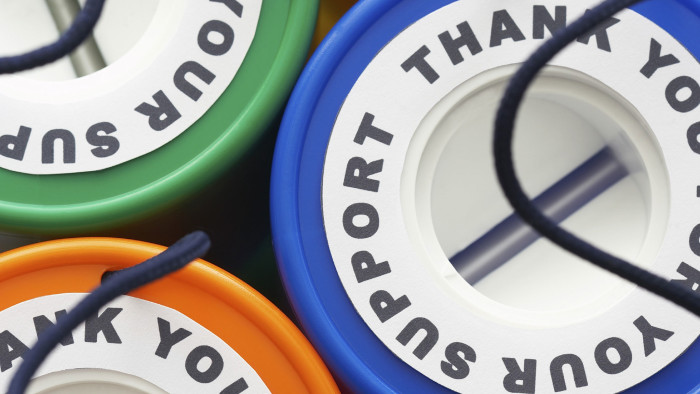The power and efficacy of effective altruism

Roula Khalaf, Editor of the FT, selects her favourite stories in this weekly newsletter.
It seems unlikely that a 28-year-old philosopher could reshape how the globally rich and powerful, from Silicon Valley to Downing Street, think about philanthropy.
But Will MacAskill, a fellow in philosophy at Lincoln College, Oxford, is seeking to do just that. He advocates a more practical form of philanthropy, termed “effective altruism”, which over the past year he has presented at Google’s headquarters in California and at Number 10. His philosophy has also been endorsed by billionaire philanthropists such as Facebook co-founder Dustin Moskovitz.
The idea is simple: effective altruists, influenced by philosophers such as Jeremy Bentham and Peter Singer, argue that people can “do good better” by determining how they spend their time and money.
MacAskill says investors, politicians and philanthropists — indeed everyone — should analyse how they donate time or money so they can be confident of having the greatest impact or, put another way, of improving the quality of peoples’ lives.
“Most moral philosophers think we should be doing something more with our resources to help the very poor than we currently do, but very few people are actually acting on that,” he says.
Effective altruism is primarily a practical movement, he expands. “Ultimately it’s [about] how much you are improving others’ lives per dollar. I think like an economist.”
MacAskill set up two charities, Giving What We Can and 80,000 Hours, while undertaking postgraduate studies at Oxford. The two have subsequently been brought together under the Centre for Effective Altruism, which seeks to “use evidence and analysis to help others as much as possible”.
When it was launched in 2011, 80,000 Hours, which gives career advice to graduates, caused controversy by encouraging people to work in high-earning jobs, such as finance and consulting, and then donate part of their income to charity.
Matt Wage, a Wall Street trader, attracted media attention in 2013 when he announced he had given away $100,000, approximately half his salary. He told the New York Times he had deliberately targeted a job that paid well so as to be able to give more to charity.
But according to MacAskill, the main purpose of effective altruism is to wean people off clinging to their monthly wage. He retains a proportion (£20,000 in 2009 terms, rising with inflation) of his salary to live on and gives the rest (roughly half his overall wage) to organisations such as health initiatives Deworm the World and the Against Malaria Foundation.
So why should we all become effective altruists — and how? MacAskill says givers should be “explicitly cause neutral” and focus on giving a proportion of their income. Giving What We Can, for example, challenges people to donate 10 per cent of their income — which may be more difficult for people on low incomes than for the very wealthy.
“Morality can sometimes be very demanding, especially if you’re living in this kind of moral catastrophe, which I think we are,” MacAskill says of the inequality in the world. “I’m pretty happy for people to give for whatever reasons they like as long as they give to the right places.”
Walking to the bicycle shed outside his poorly lit office, unembellished except for a cheap kettle on a shelf, MacAskill says it is important to anchor a culture of giving in economic research and “good scientific thinking”.
He acknowledges gathering evidence of cost-effectiveness is not always possible, for instance, immediately after natural disasters, and can be time-consuming and expensive, but insists it is necessary for charities to gain the public’s confidence. “People are dying of easily preventable diseases and we want to help, but it’s not enough merely to help,” he says, adding that saving one life is “obviously great” but if a hundred lives could be saved, “that’s obviously more important”.
MacAskill feels his philosophy can help to save lives. “I used to think I should get annoyed at myself because I [was] going to study Wittgenstein,” he says of his academic ambitions before effective altruism. “Now that guilt has gone away.”
Comments